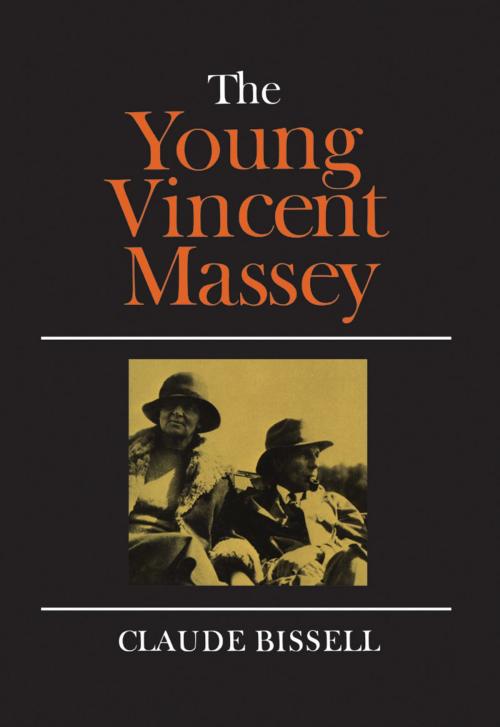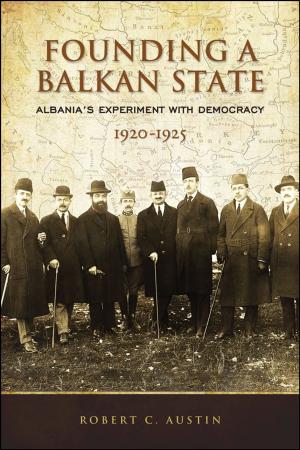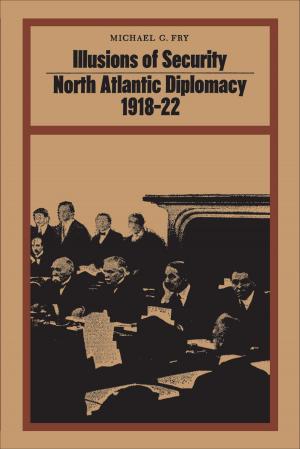| Author: | Claude Bissell | ISBN: | 9781442633711 |
| Publisher: | University of Toronto Press, Scholarly Publishing Division | Publication: | December 15, 1981 |
| Imprint: | Language: | English |
| Author: | Claude Bissell |
| ISBN: | 9781442633711 |
| Publisher: | University of Toronto Press, Scholarly Publishing Division |
| Publication: | December 15, 1981 |
| Imprint: | |
| Language: | English |
For Vincent Massey, youth was a period of protest and emerging public fame. He broke with his strong family traditions of Methodist piety and American ties. He became known as a patron of the arts, innovator, politician, and diplomat.
This volume begins with his prosperous Victorian childhood and carries through days as a student and wartime officer. He plans Hart House, which becomes a cultural centre. Promised a cabinet post, he runs for Parliament and is defeated. Instead, he is sent to Washington as Canada’s first minister there, and achieves brilliant success. He is prominent in educational circles; he helps to reorganize the Liberal party, presses for progressive policies, and flirts with the idea of replacing Mackenzie King.
The book ends in 1935 as he sails to London as his country’s high commissioner. He considers it his first major job. In between he writes poetry—usually light, sometimes venom-tipped. He acts, and directs plays. He sponsors a string quartet of international stature. He marries Alice Parkin, a handsome woman of strong convictions, and with her builds a country home near Port Hope, Ontario. He becomes a leading collector of modern Canadian art, and is involved with the painter David Milne. The book is as well a history of the people and ideas which influenced the young Massey—family, teachers, friends, associates. One chapter is given to his relations with Mackenzie King—each of them convinced of his own rightness but separated by fundamental differences, loud in protestations of friendship but nourishing an inner contempt for one another.
Claude Bissell has built this complex and absorbing portrait from the unpublished papers of Vincent Massey and members of his circle, diaries of King and other politicians, memories of artists and musicians.
He writes with vigour and elegance, quoting extensively from private records and letters, coining epigrams of his own. His portrait is sympathetic but not uncritical, with plenty of scope for the reader to make his own judgements.
This is the first of two volumes about one of Canada’s best known and least understood figures—statesman, cultural advocate, patron, family man, and first native governor-general.
For Vincent Massey, youth was a period of protest and emerging public fame. He broke with his strong family traditions of Methodist piety and American ties. He became known as a patron of the arts, innovator, politician, and diplomat.
This volume begins with his prosperous Victorian childhood and carries through days as a student and wartime officer. He plans Hart House, which becomes a cultural centre. Promised a cabinet post, he runs for Parliament and is defeated. Instead, he is sent to Washington as Canada’s first minister there, and achieves brilliant success. He is prominent in educational circles; he helps to reorganize the Liberal party, presses for progressive policies, and flirts with the idea of replacing Mackenzie King.
The book ends in 1935 as he sails to London as his country’s high commissioner. He considers it his first major job. In between he writes poetry—usually light, sometimes venom-tipped. He acts, and directs plays. He sponsors a string quartet of international stature. He marries Alice Parkin, a handsome woman of strong convictions, and with her builds a country home near Port Hope, Ontario. He becomes a leading collector of modern Canadian art, and is involved with the painter David Milne. The book is as well a history of the people and ideas which influenced the young Massey—family, teachers, friends, associates. One chapter is given to his relations with Mackenzie King—each of them convinced of his own rightness but separated by fundamental differences, loud in protestations of friendship but nourishing an inner contempt for one another.
Claude Bissell has built this complex and absorbing portrait from the unpublished papers of Vincent Massey and members of his circle, diaries of King and other politicians, memories of artists and musicians.
He writes with vigour and elegance, quoting extensively from private records and letters, coining epigrams of his own. His portrait is sympathetic but not uncritical, with plenty of scope for the reader to make his own judgements.
This is the first of two volumes about one of Canada’s best known and least understood figures—statesman, cultural advocate, patron, family man, and first native governor-general.















